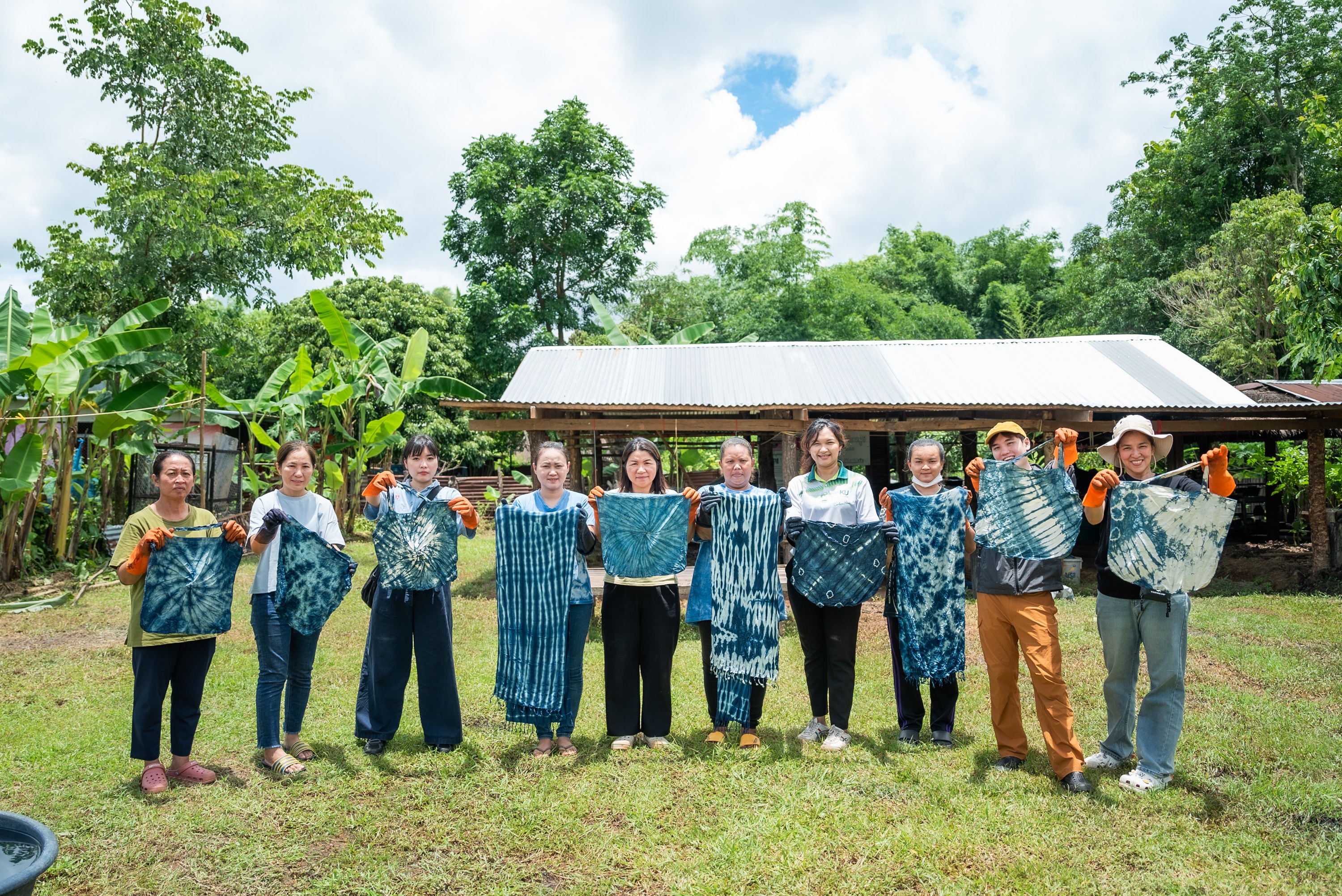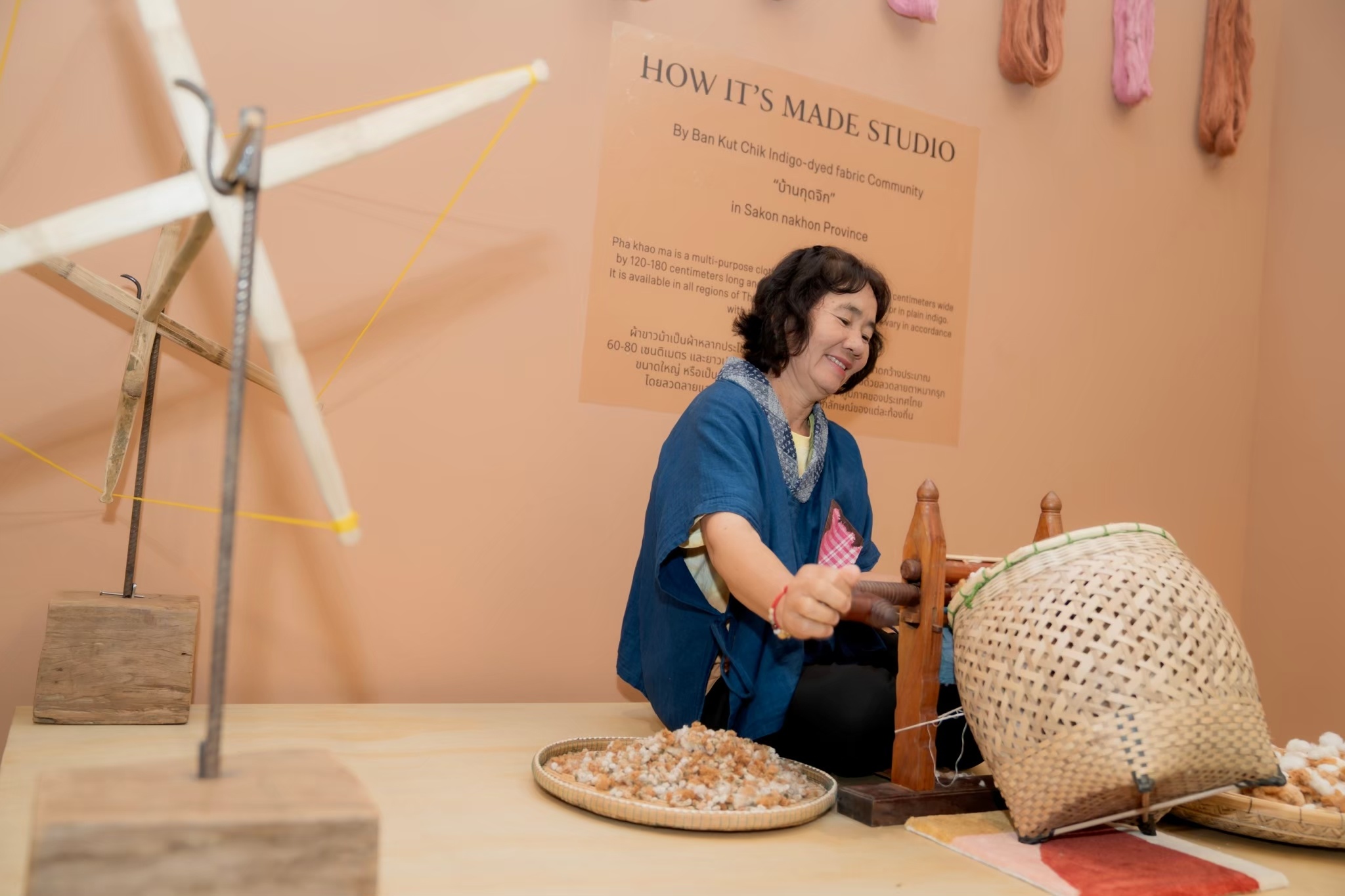Community Contribution
Challenges and Opportunities
Community contribution requires a deep understanding of the social and economic context of each area. Sustainable community development initiatives depend on collaboration among multiple stakeholders, including government agencies, private sector organizations, and local communities. However, addressing diverse community needs while ensuring the long-term continuity of projects may face certain challenges, such as limited resources, cultural differences, and communication gaps. These factors can impact participation and trust between organizations and communities. Additionally, improving the competitiveness of local products in terms of quality, standards, and market access remains a significant challenge in creating shared values with communities.
Despite these challenges, community contribution presents opportunities for businesses to develop sustainable practices and build long-term relationships. Active engagement with communities enables Central Retail to better understand their actual needs and challenges, leading to the development of more effective products, services, or initiatives. Moreover, it strengthens corporate reputation, fosters stakeholder trust, and drives innovation through collaboration between businesses and communities. Specifically, the development of local products can create income opportunities, add value to local resources, and stimulate grassroots economic growth.
To generate tangible and sustainable outcomes in creating shared values with communities, Central Retail has adopted a strategic and long-term approach. This includes close collaboration with local communities, investment in quality control systems, and support for knowledge sharing and skills development to enhance the quality of local products. Additionally, targeted marketing campaigns are conducted to raise consumer awareness of local products, along with initiatives to support local business development, fostering sustainable employment and income for communities. These efforts strengthen the relationship between Central Retail and the community, leading to mutual economic and social growth while also establishing a distinctive market position, increasing long-term market share, enhancing corporate reputation, and building stakeholder trust.
Management Approach
Framework for Creating Shared Value with the Community
The ESG team regularly reports to executives and the Corporate Governance and Sustainability Committee on Central Retail's ESG performance. The ESG representatives and Sustainable Development Officers are responsible for leading the execution of community and local product development initiatives in line with the CSVs framework. This involves sourcing locally, partnering with community organizations, and encouraging employee volunteerism. At the operational level, employees are encouraged to volunteer, share knowledge with the communities, and propose innovative ideas to support local product development. Along with adhering to Central Retail's Corporate Social Responsibility policy, this helps ensure effective communication and collaboration at all levels to support these initiatives.
Corporate Social Responsibility Policy
In addition, Central Retail remains committed to the concept of Creating Shared Values (CSVs) to improve the quality of life, education, society, and the environment. This is achieved through collaboration with various sectors, including government agencies, private enterprises, the public and communities, to drive sustainable change and growth. The goal is to create better opportunities and choices for everyone through six key strategies:
Community - Enhancing capabilities and promoting the local economy
Central Retail focuses on community economic development by conducting activities that enhance knowledge and skills for sustainable income generation and livelihood security. These efforts align with the specific needs of each community in various ways, including:
- Developing local products in terms of product design, packaging, and safety standards
- Investing in developing infrastructure
- Purchasing products for distribution through modern trade channels
- Supporting logistics and transportation
- Assisting with marketing and communication channels
- Providing business knowledge and guidance
Additionally, Central Retail emphasizes reducing social inequality, creating opportunities for all, and fostering holistic community development. It aims to establish learning centers and promote sustainable community tourism, which includes cultural tourism that preserves local traditions, organic agricultural tourism, and eco-tourism that highlights nature conservation.
Inclusion - Reducing inequality and ensuring equal access to opportunities
Central Retail is dedicated to minimizing inequality and ensuring equal opportunities, particularly in education for underprivileged children and youth. This is achieved through various educational development programs and social activities that support vulnerable groups. Central Retail promotes education to help disadvantaged youth to acquire competitive skills through eight learning aspects. It also supports teachers in developing coaching skills, reduces rote-based learning, and fosters moral and ethical programs.
Talent - Developing excellence in human resources
Central Retail strives to develop employees to achieve excellence by providing knowledge and professional skills while promoting work-life balance for overall well-being. This is facilitated through various initiatives such as education, training, international study visits, recreational activities, and knowledge-sharing programs. The focus on respecting diversity within the organization fosters an inclusive work culture that ultimately contributes to long-term corporate success.
Circularity - Driving a circular economy
Central Retail is committed to fostering a sustainable green economy by integrating environmental policies within its business operations. It promotes sustainable consumption and production, as well as circular economy principles to maximize resource and waste management. This includes reuse, recycling, and sustainable manufacturing practices.
Climate - Addressing climate change
A key goal of Central Retail is to achieve Net Zero emissions by 2050, or reducing net greenhouse gas emissions to zero. This includes promoting renewable energy share across business operations and encouraging all sectors including employees, executives, suppliers, customers, and partners to adopt energy-efficient practices and participate in environmentally friendly initiatives that align with global sustainability goals.
Nature - Conserving ecosystems and biodiversity
Central Retail prioritizes ecosystem conservation and biodiversity restoration for long-term sustainability. It implements projects to increase green spaces, promote sustainable agriculture through eco-friendly farming methods, restore watershed forests, prevent wildfires, and launch the Central Green initiative. This project aims to enhance urban green spaces, reduce air pollution, and create recreational areas in collaboration with government agencies.
Central Tham
Creating Shared Values (CSVs) Process
Care for the Community, one of the core dimensions outlined in the CRC Care philosophy, focuses on improving the quality of life for Thai people and reducing social inequality. Central Retail plans to achieve this target through expanding CSVs initiatives to other communities. CSVs is Central Retail's primary concept for implementing community contribution and local product development initiatives with following steps below.
1. Community Selection
The selection of communities and project locations is based on the following criteria:
- Potential Product: The community produces high-quality products with strong potential for development.
- Cultural Heritage: The community possesses a rich cultural heritage and unique way of life.
- Environmental Stewardship: The community demonstrates a commitment to environmental conservation and restoration.
- Strong Leadership: The community leaders are skilled at collaborating with community members to improve their quality of life and income.
- Transparency: The community maintains transparency in its operations and decision-making processes.
2. Community Engagement
By conducting surveys, focus groups including vulnerable groups, and public participation, Central Retail can effectively engage with community members and gather valuable feedback. This ensures that community initiatives and local product development programs address the specific needs and priorities of the community.
3. Integrated Community Contribution and Value Enhancement
Product Design and Development
- Collaborate with communities to create innovative products that leverage local wisdom and traditions.
- Enhance local products by adding value to appeal to the global market.
Capacity Building
- Share retail expertise through training and workshops to improve product design, production techniques, quality control, marketing for community members, etc.
Facilities and Equipment Support
- Invest in essential facilities and equipment for production and packaging.
Distribution Channels Support
- Utilize existing sales outlets to support and collaborate with the community through department stores, online platforms, and community programs like Mae Tha Sustainable Living Space Project.
4. Continuous Monitoring and Improvement
- Regularly assess the progress and impact of programs to identify areas for improvement and ensure long-term benefits for both the community and Central Retail.
- Maintain open communication with communities through annual focus groups to collect feedbacks and concerns for adjusting project to meet the needs and circumstances of communities members.
- Establish the whistleblowing system to address any concerns raised by communities and stakeholders.
Project Highlights
Agricultural and Community Product Development Learning Center Project, Ban Thappana Community Enterprise, Chaiyaphum Province
Central Retail in collaboration with local government agencies, educational institutions, and the Thappana Community Enterprise in Chaiyaphum Province, has established a Learning Center for Agricultural and Community Product Development. The project focuses on promoting high-value agricultural produces, while implementing low-carbon production techniques. Since 2022, the project has successfully converted more than 5,000 Rai of degraded agricultural land into a model for sustainable agriculture by cultivating avocados and high-value fruits within an agroforestry system distributing at Tops Supermarket and Jing Jai Farmers Market ensure that farmers benefit from fair trade opportunities and competitive prices for their produce. It also supports knowledge exchange, community capacity building, and the development of sustainable community-based tourism. The initiative has contributed to the establishment of key attractions, including local cuisine restaurants, coffee shops, and ecotourism activities. In 2024, the project generated over 41 million baht in community revenue and attracted more than 10,000 tourists annually, contributing to significant improvements in local livelihoods and environmental sustainability.
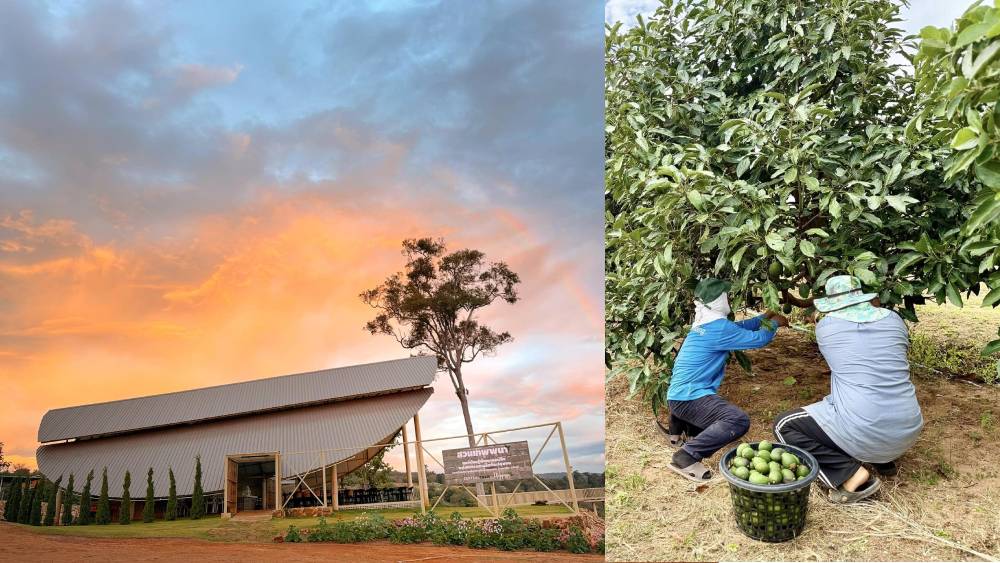
Mae Tha Sustainable Living Space, Chiang Mai Province
Central Tham collaborates with the Earth Net Foundation implementing the Mae Tha Sustainable Life Project. The project was established in 2017 with the aim of supporting organic farming projects to empower new-generation farmers in driving sustainable agriculture. Beyond being a source of high-quality organic produce from the origin, Central Group have also supported communities in product development, purchasing, branding, packaging design, and expanding distribution channels for organic produce. These include Jing Jai Farmers' Market, Tops Green Chiang Mai, Tops Supermarket, and Good Goods stores. Additionally, Central Retail have provided support for infrastructure development to enhance production and distribution. This includes constructing training centers and organic seed sorting rooms, upgrading vegetable packaging building to meet FDA standards, installing air conditioning systems in buildings, and procuring refrigerated transport vehicles for the community.
In addition to developing agricultural areas, Central Group is committed to generating additional income for the community through tourism. Central Retail has supported 20 emerging agriculturists in establishing the Mae Tha Organic Community Enterprise, which serves as a center for sustainable agriculture and community-based tourism. This initiative includes an organic farming learning center and homestay programs, allowing visitors to stay while gaining hands-on experience in sustainable farming. The project started with one homestay and is currently expanding.
As of 2024, the Mae Tha Sustainable Living Space Project has generated income over 14 million baht for the community. More than 130 households have participated in the initiative, while the tourism sector has attracted 800 visitors for training and study visits in the Mae Tha community.
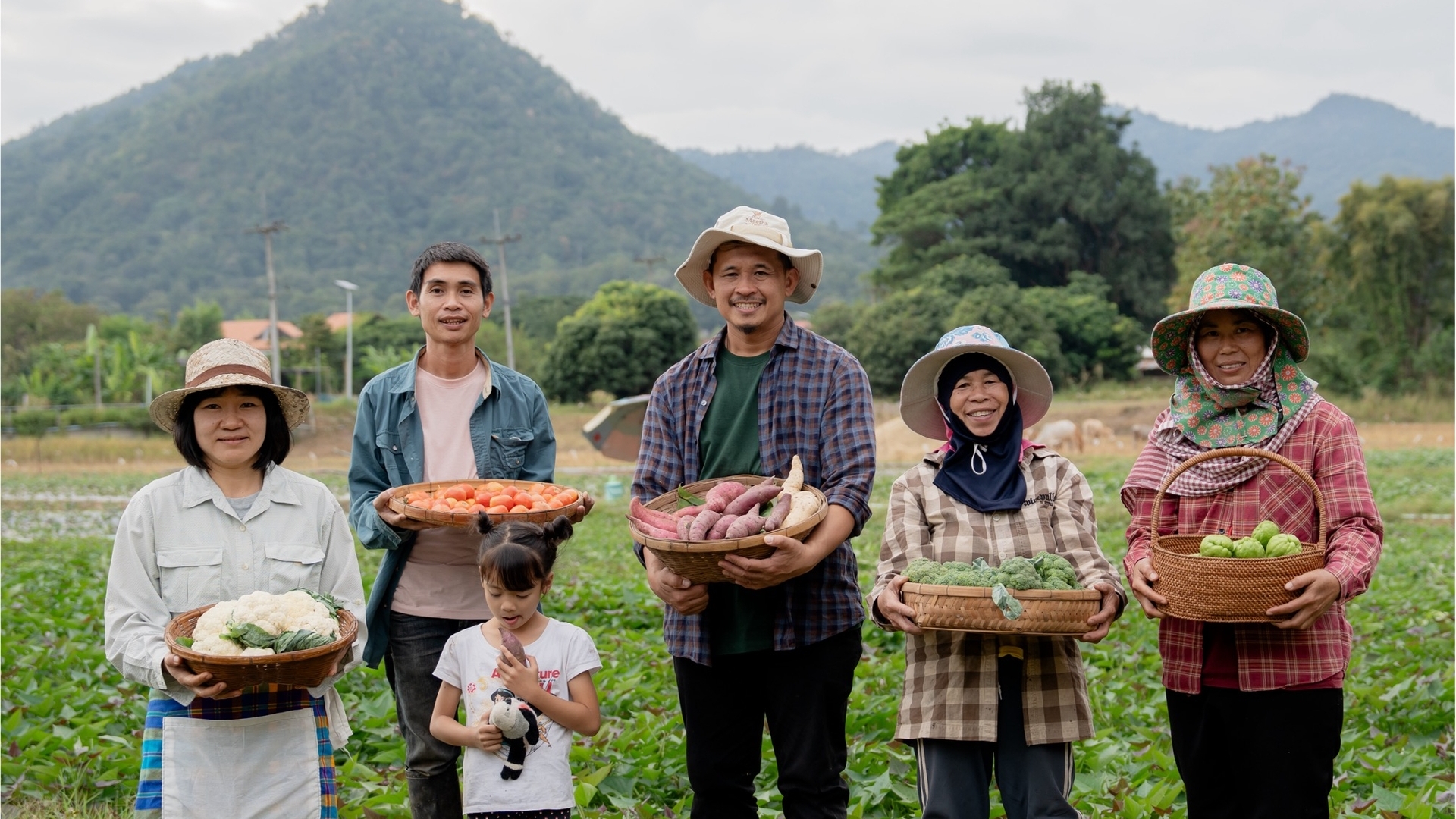
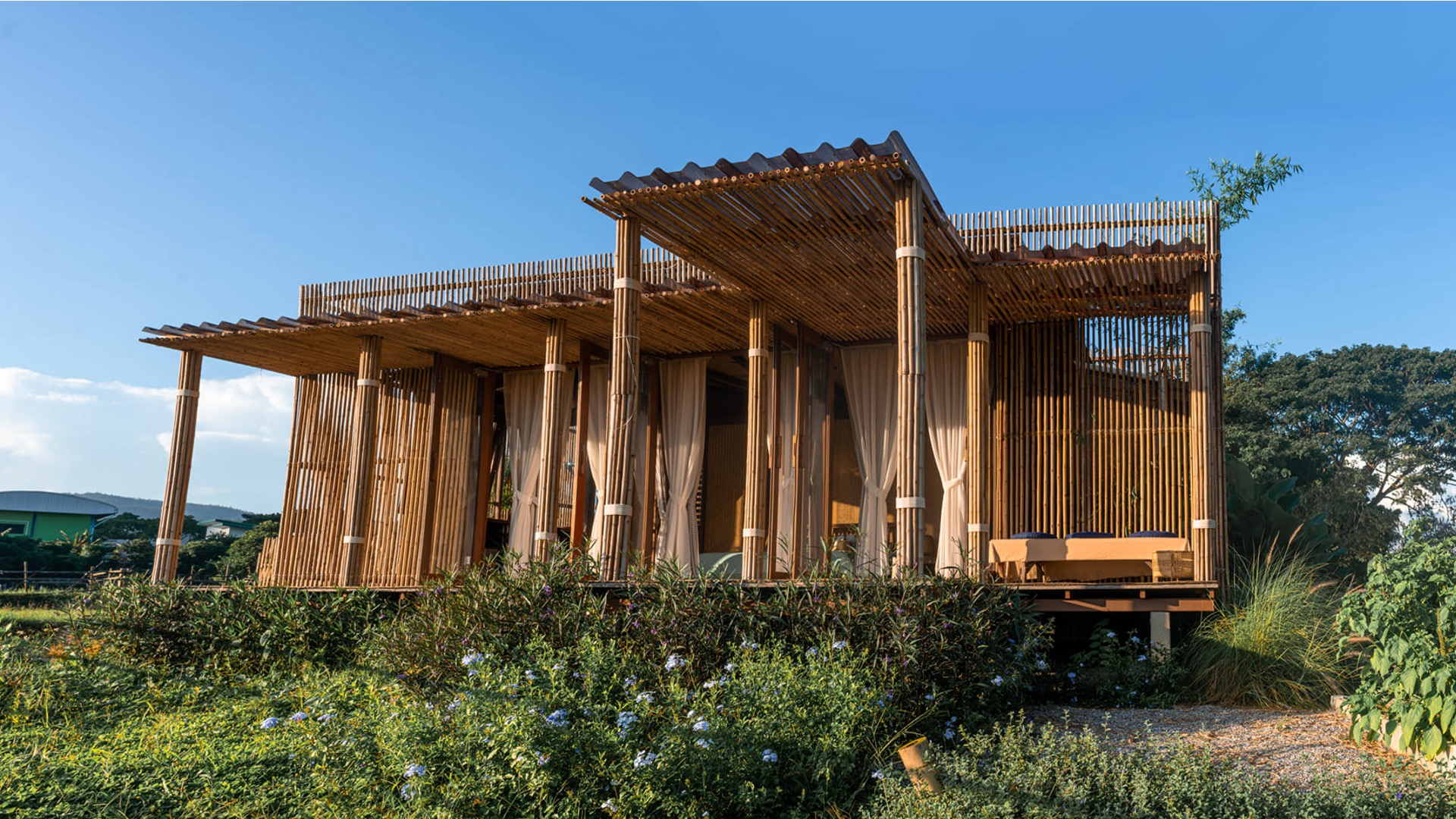
Ban Kut Chik Indigo and Natural Dye Weaving Learning Center, Sakon Nakhon Province
Ban Kutjik Community Textile Enterprise Moo.9 aims to preserve local wisdom in indigo dyeing and tie-dye techniques to create intricate patterns. It also seeks to elevate natural dyeing methods using various dye-producing plants grown naturally, such as indigo, cape jasmine, Indian trumpet, queen’s flower, Burma padauk, and river almond trees. This initiative helps conserve local trees for future generations while preserving the value of handicrafts through the “Forest for Colors” spanning 18 rai. This effort aligns with Central Retail’s environmental policy and green space restoration strategy. Beyond expanding green spaces, the Forest for Colors project also ensures a stable supply of natural dyeing materials for the Ban Kudjik community. It supports the growth of local handicrafts to meet market demands and prepares the community to become a cultural tourism destination. The project is located in Ban Kudjik, Nakham Subdistrict, Wanorn Niwat District, Sakon Nakhon Province, where the community and skilled artisans specialize in cotton cultivation, natural dyeing, and traditional hand weaving.
This project revitalizes traditional indigo-dyeing techniques and incorporates modern design innovations such as wax-resist (batik) and Shibori-style patterns. Infrastructure development includes the construction an indigo dyeing workshop, dyeing facility, product exhibition room, community store, and skill training programs to enhance knowledge. In collaboration with Kasetsart University, the project has worked on improving the durability of natural dyeing processes. These enhanced dyeing techniques have helped the Ban Kudjik community expand their capabilities in natural dyeing, reducing environmental impact while also fostering design innovation to diversify their product offerings.
Regarding distribution channels, Central Group has collaborated with Central Tham to develop products that meet international standards. These products are sold at Good Goods stores across various locations and at Central Department Stores (CDS), which recognize the value of Ban Kudjik’s handcrafted cotton textiles. To further support the community, CDS invited Ban Kudjik artisans to showcase their work at the Songkran Market festival at Central Chidlom Department Store. This initiative helped promote local craftsmanship, share the community’s story, and introduce Ban Kudjik’s cultural heritage to both Thai and international customers.
The project has driven a substantial increase in household incomes, with community revenue growing from 350,000 THB in 2020 to over 3.6 million THB by 2024. Membership in the textile enterprise expanded from 30 to 61 households, reflecting the project’s ability to engage the community meaningfully. The Forest for Colors initiative has reduced dependence on synthetic dyes, enriched local biodiversity, and supported sustainable tourism activities, attracting 3,000 visitors annually and generating 6.8 million THB in additional revenue.
